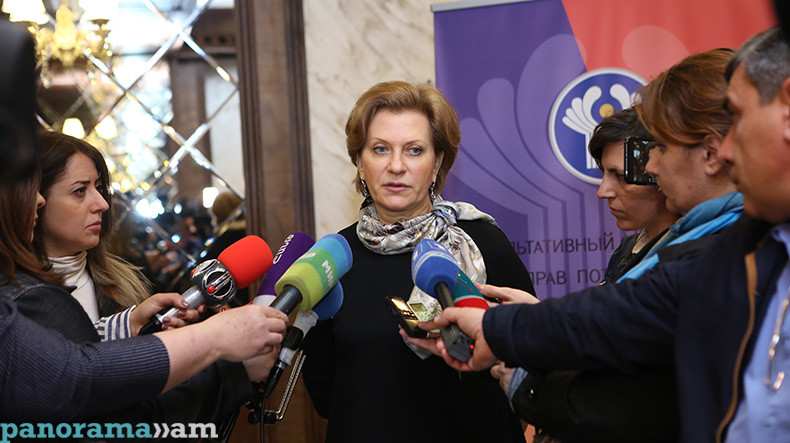
Quantity, distribution of poor quality products increased dramatically worldwide – CIS official
The quantity and distribution of poor quality goods have drastically grown worldwide, Anna Popova, Director of the Advisory Board for the Protection of Consumer Rights of the CIS member states, told reporters at the 14th meeting of the board hosted by Yerevan, Armenia’s capital.
She said the meeting is of great importance for the agencies dealing with the consumer rights protection, adding they will seek to elaborate common solutions in this period of dynamically developing services for consumer protection, variety of goods and transition to digital economy.
“It is important for people to feel themselves protected and know how to defend their rights and whom to apply in their county,” she said.
Asked what mechanisms can be developed to protect consumers from unsafe toys and cosmetics, the Russian official said the issue persists in all countries. “In 2015, the United Nations adopted new strategy for consumer rights protection to solve today's problems, with its agenda focusing on protecting the rights of vulnerable populations, including the elderly, children and persons with disabilities, as well as protecting them from poor quality products,” she said.
“Today, the numbers and distribution of such goods have increased dramatically,” Anna Popova said, stressing the need to draw up respective regulations to tackle the issue.
Speaking to reporters, Levon Khalikyan, Head of the Market Surveillance Inspection Body (MSIB) of Armenia’s Ministry of Economic Development and Investments, said that the dangerous spheres are the same for almost all countries.
“They refer to toys, cosmetics, petrol stations, and all those products that can pose a threat to human health. We need to propose solutions to ensure against the imports of such goods, as well as to refrain from producing them,” he said, adding that such meetings also aim at regulating the legislation of each county to protect consumers against dangerous goods and low-quality services.
The meeting has brought together heads of state and non-governmental organizations dealing with consumer protection from Russia, Belarus, Georgia, Kazakhstan, Kyrgyzstan, Tajikistan, Uzbekistan and Moldova.





Newsfeed
Videos






























